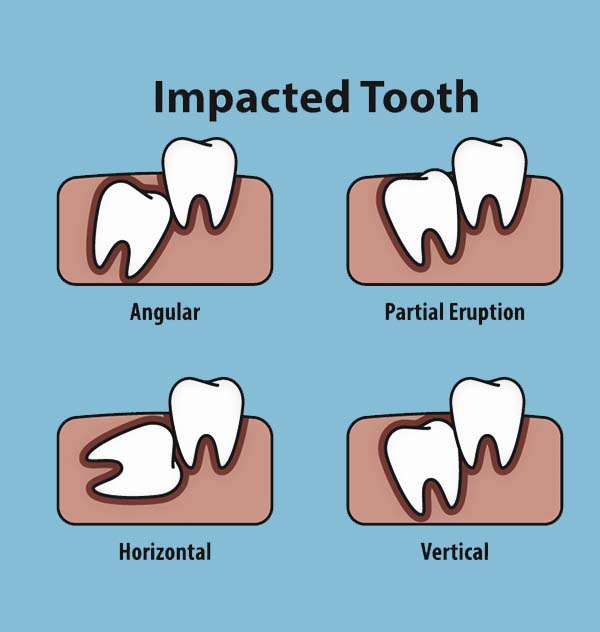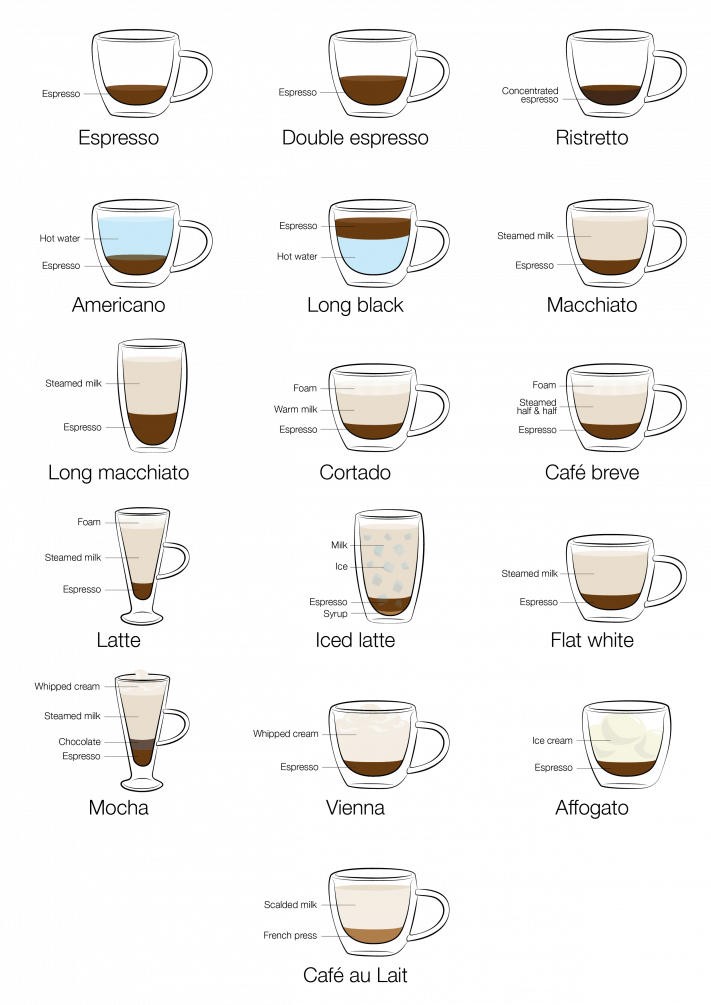Life without coffee can seem bleak for the ardent caffeine enthusiasts among us, and there is nothing more invigorating that a cup of it in the morning. But what happens when you find yourself having your wisdom teeth removed? Does that mean that you cannot have your beloved coffee for an indefinite period?
The answer is YES, but only for a short one. After your wisdom teeth removal surgery, it is recommended that you avoid consuming coffee, tea or any form of hot beverages for the first 24 hours. This is because hot liquid can irritate the surgical site and potentially dislodge the blood clot that is forming on the socket. When this happen, it can lead to a painful complication known as dry socket.
In the sections that follow, we will look at what makes up a coffee and whether the ingredients can affect your healing. We will also offer general guidelines around the consumption of coffee or hot beverages after your wisdom teeth removal, taking into account the various factors that impact your recovery journey.
So, grab your favorite coffee blend, prepare for an enlightening journey, and discover how to strike the perfect balance between your passion for coffee and a smooth wisdom teeth removal recovery.
Understanding Wisdom Teeth Removal
Wisdom teeth, also known as the third molars, are the last set of teeth to emerge. The molars typically appear between the age of 16 and 25, although their time of eruption can vary.
The wisdom teeth were once a necessity for our ancestors as their diet consisted of tough plant fibers which required extra chewing power. However, with the evolution of our diet to a modern and processed once, these molars were no longer needed. As our jaw size were reduced, the wisdom teeth caused problems such as overcrowding.

Today, the removal of the wisdom teeth have become common dental procedure to address the pain and irritation due to overcrowding. Very often, the wisdom teeth becomes impacted, resulting in painful complications such as misalignment of the other teeth. This can worsen to an infection and gum diseases. As such, many sought the removal of their wisdom teeth even when it is not causing an issue.
You may be interested in: Food to Eat and Avoid After Wisdom Teeth Removal
The removal surgery is a standardized procedure that most oral surgeons or dentists can perform. Note that prior to the wisdom teeth surgery, patients are advised to avoid eating or drinking for at least 12 hours. This fasting period allows for proper administration of anesthesia and reduces the risk of aspiration.
Here is how the procedure is typically performed:
- Consultation: A consultation is first scheduled to examine the mouth, take X-rays or perform other imaging tests to assess the position and condition of the wisdom teeth. Treatment options are recommended and information about the procedure, anesthesia is discussed.
- Anesthesia Different types of anesthesia can be administered, depending on the complexity of the case and the patient’s comfort level. Local anesthesia is commonly used to numb the extraction area, ensuring the patient is pain-free during the removal surgery. In some cases, conscious sedation or general anesthesia may be administered to provide additional comfort and relaxation.
- Removal of Wisdom Teeth: Depending on factors such as tooth position, impaction level, and the overall oral health, specific techniques may be used. In a simple extraction where the wisdom tooth has fully erupted and is in a favorable position, it can be extracted using forceps in a procedure similar to the removal of any other tooth. However, when the wisdom tooth is impacted or has only partially erupted, an incision has to be made to the gum tissue to access the tooth. The tooth may be broken up into sections to allow for easier removal.
- Cleaning Up and Suturing: Once the wisdom tooth is removed, the extraction site is thoroughly cleaned to remove any debris or infection. In certain cases, dissolvable stitches or sutures may be used to close the incision.
After the surgery, you will experience pain and swelling for the first 24 to 72 hours. Post-operative care is crucial for ensuring a speedy and complication-free recovery after wisdom teeth removal. Follow the instructions provided and maintain proper oral hygiene throughout the healing period.
Ingredients in a Coffee
A cup of coffee typically contains a few key ingredients that come together to create the beloved beverage. The primary ingredient is coffee beans, which are the roasted seeds of the Coffea plant. These beans are the heart and soul of coffee, responsible for its distinct flavor, aroma, and the energizing effects it provides. The type of coffee beans used can vary, with popular varieties including Arabica and Robusta.
Water is another essential ingredient in the coffee-making process. Brewing coffee involves mixing hot water with ground coffee beans, allowing the water to extract the flavors, oils, and compounds from the coffee grounds. The quality and temperature of the water used can significantly impact the taste and overall experience of the coffee.

In addition to the core ingredients of coffee and water, there are optional ingredients that people often add to customize their cup of joe. Sugar or sweeteners are commonly used to enhance the sweetness of the coffee. The amount of sugar added can vary based on personal preference and dietary choices.
Milk or cream is another popular addition to coffee, serving to provide a creamy texture and mellow the taste. It can range from whole milk to non-dairy alternatives like soy milk, almond milk, or oat milk, catering to different dietary preferences and restrictions.
Some coffee drinkers enjoy experimenting with flavorings to add an extra dimension to their coffee. Flavorings such as vanilla, caramel, hazelnut, or other syrups can be added to create a personalized and unique taste profile.
Furthermore, certain spices can be incorporated into coffee to enhance its flavor. Cinnamon, nutmeg, or cardamom are popular choices that add a subtle warmth and aromatic touch to the coffee experience.
It is important to note that the specific ingredients and their quantities can vary widely based on personal preference, cultural traditions, and the specific type of coffee being prepared. Different coffee-based beverages, like espresso, cappuccino, or latte, may have additional ingredients such as frothed milk, chocolate, or whipped cream to create specific flavors and textures.
Reintroduction of Coffee After Wisdom Teeth Removal
As mentioned above, you should only reintroduce coffee or hot liquid into your diet at least 24 hours after the surgery. This is to ensure proper healing and minimize potential complication.
When you are ready to reintroduce coffee, opt for lukewarm or cool temperature and avoid piping hot coffee. Hot liquid can cause pain to your surgical site if it has not fully healed. If possible, avoid adding excessive sugar or dairy products as it can cause discomfort and promote the growth of bacteria, increasing the risk of complications.
Additionally, when reintroducing coffee to your diet, take small sips of coffee rather than drinking it quickly. Be mindful of the extraction sites and any potential sensitivity or discomfort. If you experience pain or irritation, it may be necessary to wait a little longer before consuming coffee.
After having coffee or hot liquid, rinse your mouth with warm saltwater or a prescribed mouthwash to keep the extraction site clean and minimize the risk of an infection.
Last but not least, listen to your body. Everyone’s healing process is different, so pay attention to your body’s signals. Some may be able to reintroduce solid food into their diet in as little as 72 hours, while others may take over a week for the surgical wound to heal sufficiently. If you experience any persistent pain, excessive sensitivity, or other concerns after reintroducing coffee, it is advisable to consult your dentist or oral surgeon for guidance.
Remember, these guidelines are general recommendations, and it’s essential to follow the specific post-operative instructions provided by your dental professional.
Hot Coffee vs Iced Coffee
Now some may wonder if it is ok to have iced coffee instead of hot coffee after the surgery. Iced coffee can provide a refreshing option while still allowing you to enjoy the flavor and experience of coffee. However, it is still recommended that you consume coffee only 24 hours after the surgery. This is to provide time for your surgical wound to heal. Irritating the wound can cause serious complications such as dry socket and prolong the recovery period.
Also, ensure that the iced coffee is not too cold to cause discomfort. ou can achieve this by either using cold brew coffee or allowing hot brewed coffee to cool down before adding ice. This way, you can still enjoy the flavors and caffeine boost without exposing your sensitive extraction sites to extreme temperatures.
Conclusion
To summarise, the question of whether you can drink coffee after wisdom teeth removal requires careful consideration. It is highly recommended that you should only reintroduce coffee to your diet 24 hours after the wisdom teeth removal surgery.
Start with lukewarm or cooler temperature to avoid irritating the surgical wound. Pay attention to your body’s signals, taking small sips and being mindful of any discomfort or sensitivity. Avoid adding ingredients that may irritate the extraction sites and maintain good oral hygiene practices.
By striking the right balance between enjoying your cup of coffee and prioritizing your recovery, you can navigate the post-wisdom teeth removal period with confidence and promote optimal healing.







